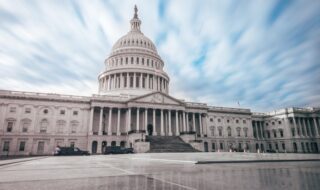March 23, 2022
Paid Leave Mandate Would Hit Already Struggling Minnesota Small Businesses
The National Federation of Independent Business (NFIB), which represents over 10,000 small businesses in Minnesota, is raising alarm over a proposal to establish a state-run, 24-week paid leave program funded by a $1 billion payroll tax increase.
The proposal requires small employers and others to fund the state paid leave program, allows employees to take up to 24 weeks of leave per year, and would create a new bureaucracy to manage the program. Initial development and staffing costs for the program will exceed $85 million, according to a 2019 state fiscal analysis.
“This unnecessary mandate will only exacerbate staffing and financial headaches for small businesses in Minnesota,” said NFIB State Director John Reynolds. “After struggling through the pandemic, the last thing Main Street needs is a $1 billion payroll tax hike. Our small employers care about their employees and are mindful of what they need. They don’t need politicians in St. Paul micromanaging their business.”
Watch Reynold’s interview with ABC new anchor Betsy Singer of KAAL news in southern Minnesota about the issue here.
Small employers are already facing painful economic headwinds – record inflation, skyrocketing energy costs, labor shortages, supply chain disruptions – and many have not fully recovered from the COVID-19 pandemic. According to the most recent NFIB Small Business Recovery Survey:
- 67% are experiencing staffing shortages
- 77% have lost sales due to staffing shortages
- 27% say staffing shortages are worse than 3 months ago (only 6% say better)
In response, small employers are doing everything they can to keep up: 95% have increased starting wages, 91% are working more hours, 62% are offering more overtime, and more than a quarter are increasing paid time off and health insurance benefits.
According to the Employee Benefits Research Institute (EBRI), in 2020, 77% of employees were offered paid vacation and 66% were offered paid sick time.
“Small business owners need flexibility to do the best they can for their business and their employees,” added Reynolds. “It’s particularly insulting to politicians propose a $1 billion tax hike after failing to stop massive Unemployment Insurance tax increases caused by the pandemic and government shutdowns.”
While the Paid Leave Payroll Tax starts at .6% of wages up to $147,000 per year, it could increase to any amount necessary to cover claims in future years. Due to higher than expected utilization, Washington State’s paid leave program increased its payroll tax by 50% for 2022.
“The massive surge in unemployment claims during the pandemic showed us how quickly these types of programs can become overwhelmed,” said Reynolds. “Based on low assumptions about the average worker using the program, it seems almost certain costs will exceed expectations and the payroll tax will go up in future years.”
NFIB is a member-driven organization advocating on behalf of small and independent businesses nationwide.
Related Articles














